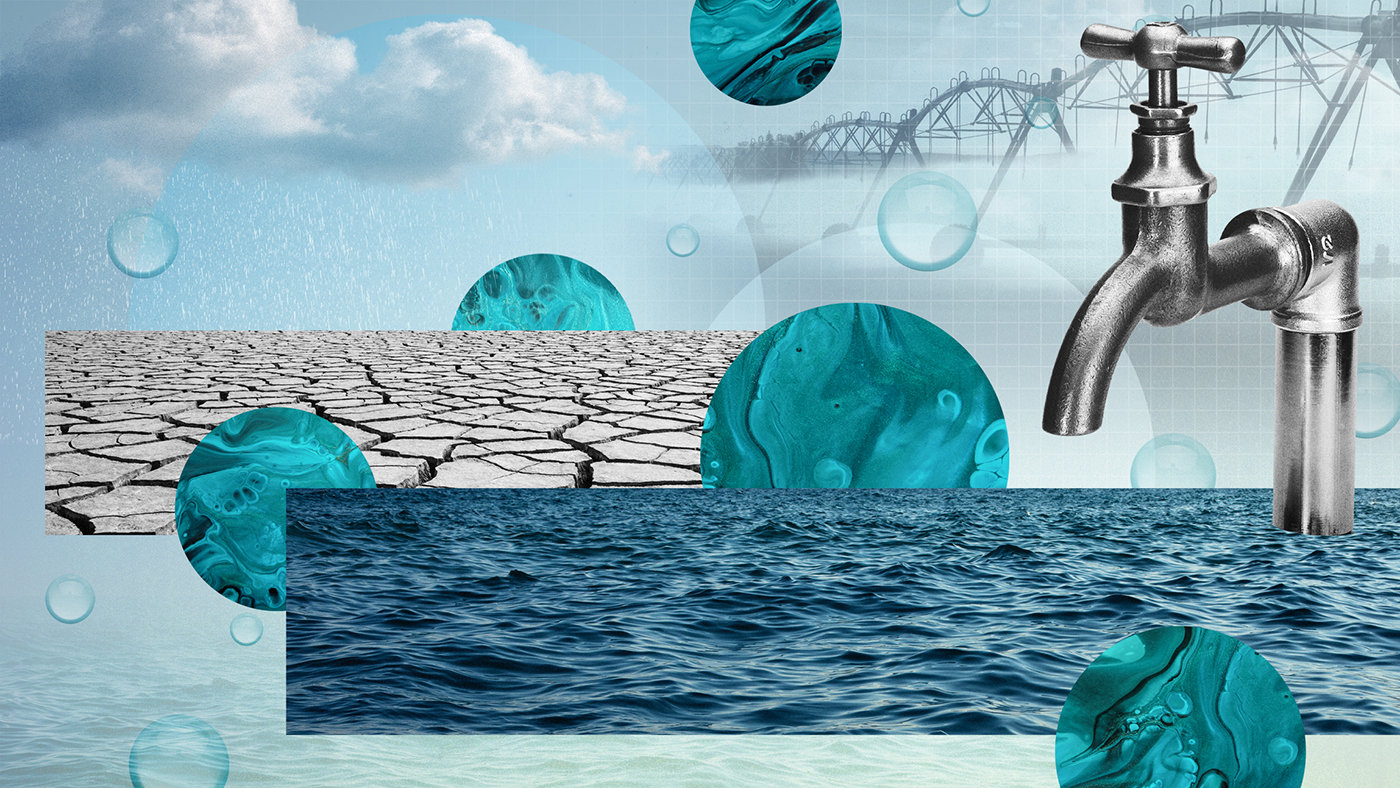Can the world solve its 'imminent' water crisis?
An ominous U.N. report draws attention to a growing problem


A free daily email with the biggest news stories of the day – and the best features from TheWeek.com
You are now subscribed
Your newsletter sign-up was successful
The world faces an "imminent" water crisis. The United Nations this week released a report saying the planet's water supply is being drained by "unsustainable water use, pollution, and unchecked global warming," the BBC reports.
For much of the world, the crisis is already here. "Globally, two billion people do not have safe drinking water," the U.N. reports. And city dwellers aren't exempt: "The global urban population facing water scarcity is projected to potentially double from 930 million in 2016 to between 1.7 and 2.4 billion people, in 2050."
This isn't just an international problem, The Wall Street Journal notes: "Parts of the U.S. have increasingly felt pressure on their water systems after a series of droughts and aging infrastructure have affected farming and left some cities desperate for clean drinking water." As many as 44 million Americans live with inadequate water systems, but those numbers "are eclipsed by water crises affecting poorer nations, particularly parts of Africa." The crisis has been long in the making — and only now might be getting the attention of policymakers. "This might be the year that the world finally acknowledges its mounting water crisis," GZERO Media reports.
The Week
Escape your echo chamber. Get the facts behind the news, plus analysis from multiple perspectives.

Sign up for The Week's Free Newsletters
From our morning news briefing to a weekly Good News Newsletter, get the best of The Week delivered directly to your inbox.
From our morning news briefing to a weekly Good News Newsletter, get the best of The Week delivered directly to your inbox.
What are the commentators saying?
Climate change is a huge contributing factor in this crisis. "Extreme and prolonged droughts, made more frequent and severe by the climate crisis," are putting pressure on the planet's water supply, CNN explains. There is also the problem of overconsumption. "Agriculture consumes more water than any other source and wastes much of that through inefficiencies, the World Wildlife Fund adds. That means the water crisis might also end up being a food crisis. "Agriculture is both a major cause and casualty of water scarcity," the Food and Agriculture Organization of the United Nations says in its overview of the issue. Meat production is a big part of the inefficiency: The U.N. agency says it takes roughly 1,250 liters of water to produce a kilogram of lentils — and 13,000 liters to produce a kilogram of beef.
Another factor in the crisis: The popularity of bottled water. The global market for bottled water is expected to double over the next decade, to $500 billion a year, explain U.N. scientists Zeineb Bouhlel and Vladimir Smakhtin at The Conversation. That's faster growth than any other food industry category. But in many low-income countries, "rising consumption of bottled water can be seen as a proxy indicator of decades of governments' failure to deliver on commitments to safe public water systems." And, CNN adds, "some companies are operating in areas where there are already shortages in drinking water."
What's next?
Just as there is no one reason for the water crisis, there is no single solution either. Small efforts like fixing Italy's leaky pipes might make a difference. So might desalinizing the world's ocean water for drinking. Isla Urbana, a Mexican nonprofit, installs home rainwater tanks "to capture rain that's used primarily for non-drinking water purposes," NPR reports. The U.N. report also promotes the idea of "water funds," in which big water guzzlers — cities and utilities — "invest money in farmers operating upstream" so they can cut their water usage. The less water that goes toward agriculture, the more that's left over for drinking. And the International Energy Agency says the world's move to clean energy sources could help ease the water crisis: Water is used to extract and wash coal for power plants, and as those coal-powered plants come offline, the amount of water they use will drop.
There has been some discussion about creating a legally binding international water treaty to enforce more efficient water use, but that seems a long way off. Meanwhile, officials and activists worry that the common good will be crowded out by capitalist enterprises. "Considering water as a commodity or a business opportunity will leave behind those that cannot access or afford the market prices," a panel of U.N. experts said in a joint statement. But business leaders say water security will also be important to their bottom line in the future.
A free daily email with the biggest news stories of the day – and the best features from TheWeek.com
Experts are sounding the alarm — but they remain hopeful, as well. "If we take appropriate action," says Kristin Meyer of the U.N. Office for Disaster Risk Reduction, "natural hazards don't have to turn into disasters."
Joel Mathis is a writer with 30 years of newspaper and online journalism experience. His work also regularly appears in National Geographic and The Kansas City Star. His awards include best online commentary at the Online News Association and (twice) at the City and Regional Magazine Association.
